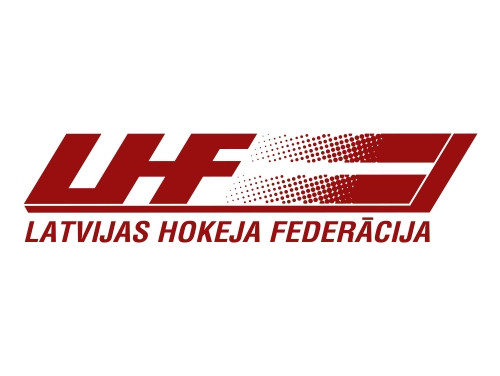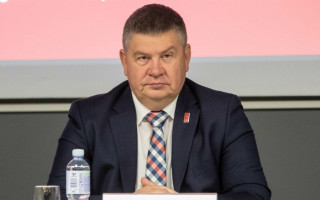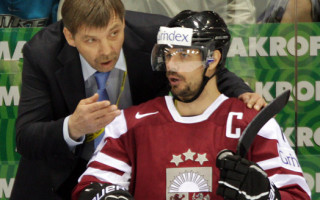17.10.2007 raksts par Latvijas hokeju www.nhl.com
2007. gada 17.oktobrī Nacionālās Hokeja līgas (NHL) oficiālajā interneta mājas lapā parādījā raksts par Latvijas hokeju (links - http://www.nhl.com/nhl/app/?service=page&page=NewsPage&articleid=340298).
Piedāvājam arī mūsu lasītājiem iepazīties ar šo rakstiņu, gan angļu valodā.
Latvian champs leave their stamp on NHL
Bill Meltzer | NHL.com correspondent
Oct 17, 2007, 9:00 AM EDT
Colorado Avalanche defenseman Karlis Skrastins is one of several native-Latvian NHL players who got their start in the former Dinamo Riga system.Although it has only been an independent country for just 17 years, Latvia has a long and proud hockey tradition that predates the rise of Soviet hockey.
While Latvian hockey (like the country itself) was dominated by the Russian system for much of the 20th Century, the first Latvian hockey team was formed in 1931, 15 years before the “Father of Russian Hockey,” Anatoli Tarasov, was first instructed by the Kremlin to assemble and train an ice hockey team.
From the very beginning, the capital city of Riga has been Latvia’s hockey hub. The Army Sports Club (Armijas Sporta Klubs), ASK Riga, dominated the early Latvian league. World War II and the rise of Soviet hockey saw the Latvian league disband from 1944 until 1990. Dinamo Riga became a mainstay of the Soviet league and later continued until 1995 as Stars Riga and Pardaugava Riga in what’s now called the Russian Super League.
In many ways, HC Riga 2000 (sometimes rendered as HK Riga 2000), are the modern successors to the legacy of the earlier Latvian clubs. Although a Latvian-based league was re-formed in 1991 and HC Riga 2000 was established (as its name suggests) nine years later, the team is the dominant force of Latvian club hockey. They’ve won five Latvian championships in this decade, including the last four seasons in a row. For several years, the team simultaneously competed in the Belarusian league, placing third in 2005-06.
Former NHL goaltender Arturs Irbe is a Latvian native.
Riga central in several NHL firsts
Bill Meltzer | NHL.com Correspondent
Through the years, North American fans and reporters have often lumped Latvia’s contributions to international and NHL hockey in with those of Russia. While this was an understandable mistake during the Soviet era, Latvian hockey is worthy of mention in its own right.
Riga is Latvia’s hockey epicenter. The predecessor clubs of HC Riga 2000, most notably Dinamo Riga (later called Stars Riga and Pardaugava Riga), were at the center of many notable players’ careers and several milestones in NHL history.
For instance, did you know that the first Soviet player drafted by an NHL team was not a Russian, but a Latvian player from Dinamo Riga? It’s true.
In 1975, the Philadelphia Flyers selected talented, but troubled, Riga forward Viktor Khatalev (Viktors Hatulevs) in the ninth round of the NHL draft. The player, who elected to play for his hometown club instead of the world famous CSKA Moscow squad, did not learn he’d been drafted until three years later. He never played in the NHL and saw his career in the Soviet Union brought down by personal problems and a series of on-ice incidents. He died in poverty in 1994 at the age of 39.
On a happier note, Soviet era offensive superstar and IIHF Hall of Fame inductee Helmut Balderis (Helmuts Balderis) was eventually able to bring his talents to the NHL after rising to prominence with Dinamo Riga. He holds the distinction of being the oldest player drafted by an NHL team and the oldest to score his first NHL goal, when he tallied three goals and six assists for the Minnesota North Stars at the age of 37 during the 1989-90 season.
More recently, Riga was the initial training grounds for a vast majority of Latvian NHL players of the 1990s and 2000s. For instance, Sandis Ozolinsh (Sandis Ozolins) broke in with Dinamo Riga in the early 1990s before he was drafted by the San Jose Sharks in second round of the 1991 draft. Likewise, former Pittsburgh Penguins forward Victor Ignatiev (Viktors Ignatjevs), the late Sergei Zholtok, current Colorado defenseman Karlis Skrastins, longtime NHL goalie Arturs Irbe and ex-NHL backup goaltender Peter Skudra (Peteris Skudra) all broke in through the Riga system.
Former NHLer Herbert Vasiliev (Herberts Vasiljevs) is a Riga native, but played much of his junior hockey in Germany because his father was hired as a coach for the Krefeld Penguins’ junior program. The elder Vasiliev, Harald, was a standout for Dinamo Riga in the late 1970s and early 1980s.
In January 2008, Riga will host the finals of the 2007-08 International Ice Hockey Federation Continental Cup. The Continental Cup has more or less evolved into the IIHF’s “lower” European club team tournament. The European Champions Cup exclusively features the club team champions from the top European leagues.
Many of the clubs competing in the Continental represent secondary leagues such as Denmark’s AL-Bank Ligaen (AaB Aalborg), Kazahkstan’s national league (Kazzinc Torpedo), Holland’s Tricorp Workwear Ere Divise (Tilburg Trappers) and France’s Ligue Magnus (Bruleurs de Loups Grenoble). Host club HC Riga 2000 is guaranteed to appear in the finals. In past tournaments, HC Riga has finished as high as second.
Riga also will host a bracket of the 2008 IIHF Division I Under-20 World Junior Championships, to be held Dec. 12-18. With the emergence of prospects from secondary hockey countries, recent Division I junior tournaments have drawn larger contingents of NHL scouts than those held in the past. It’s a lock that Team Latvia will feature numerous players from the HC Riga 2000 system.Familiar names have Riga ties
All Latvian hockey schools of significance are located in Riga. The HC Riga 2000 program produces almost all of the players who go on to play professionally and appear on the national team. It also is the highest profile club in terms of bringing native-born NHL players back for a second tour of duty in their home country.
Most of the recent Latvian hockey names familiar to NHL fans have had connections with HC Riga in one way or another, including Colorado Avalanche defenseman Karlis Skrastins, longtime NHL goalie Arturs Irbe, former Florida Panthers center Janis Sprukts, the late Sergei Zholtok (Sergejs Zoltoks) and Los Angeles Kings tough guy Raitis Ivanans.
Skrastins, Irbe and Zholtok all got their starts in the former Dinamo Riga system and, during the NHL lockout season of 2004-05, returned to their homeland to play for HC Riga 2000. Tragically, Zholtok, who scored 26 goals for the Montreal Canadiens in 1999-2000, suffered a fatal heart attack on the ice during a game for HC Riga in Minsk, Belarus. Paramedics attempted to revive Zholtok, but he passed away in the dressing room. The player, who had a history of an irregular heartbeat, was just 31. Today, Zholtok’s retired No. 33 hangs at Siemens Ice Hall (Siemens ledus halle), HC Riga 2000’s home rink.
Sprukts, who suited up for HC Riga 2000 at the preseason Latvian Cup held in August of this year, also played for the team during the 2004-05 campaign. He is now playing for Lukko Rauma in Finland’s SM-Liiga (Elite League). Prior to working his way up through minor hockey in North America, a teenaged Ivanans played in Riga. Both Sprukts and Ivanans are Riga natives.Reigning supreme in Latvian league
Today the top Latvian league, which like many Euro circuits is named for its sponsor, is called the Samsung Premier League. Currently, the league features seven teams – five from Latvia (HC Riga 2000, LSPA Riga (SK Riga 20), ASK Ogre, HC Liepajas Metalurgs and DHK Latgale), one from Lithuania (SC Energia) and one from Estonia (Big Diamonds Tartu).
In the early part of the decade, Liepaja was the top team in the league, winning a pair of championships. While HC Riga 2000 subsequently eclipsed their rivals, Liepaja continues to present the strongest challenge. The Metalurgs are three time runners-up during HC Riga 2000’s current run of five championships in seven seasons.
Last year, HC Riga beat ASK/Ogre three games to one in the best-of-five finals. The deciding game drew some attention from abroad because of a wild brawl that saw one Ogre player, Andrei Lavrenov (Andrejs Lavrenovs), banned from the league for two years for pole-axing Riga’s Raimond Danilic (Raimonds Danilics) in the head with his stick and two other players, Dmitry Kornilov (Dmitrijs Kornilovs) and Alexander Terjohin (Aleksandrs Terjohins), suspended for the entire 2007-08 season for their actions in the brawl.
Fortunately, the early part of the current season has been much calmer. Once again it’s a three-team race, with Liepaja currently in first place after 12 games with a 9-2-1 record. Ogre and HC Riga 2000 are right on the Metalurgs’ heels with eight wins apiece.
Ogre’s Andrei Ignatovic (Andrejs Ignatovics), who played for HC Riga 2000 the previous four seasons after a stint in Sweden’s Elitserien, leads the Samsung Premier League in scoring in the early going with eight goals and 18 points. Among current HC Riga players, 20-year-old Gints Meija, leads the club with six goals and 12 points in eight games. Meija, originally an SK Riga 20 product, played for Team Latvia at the Division I World Junior Championships last year.
www.nhl.com






